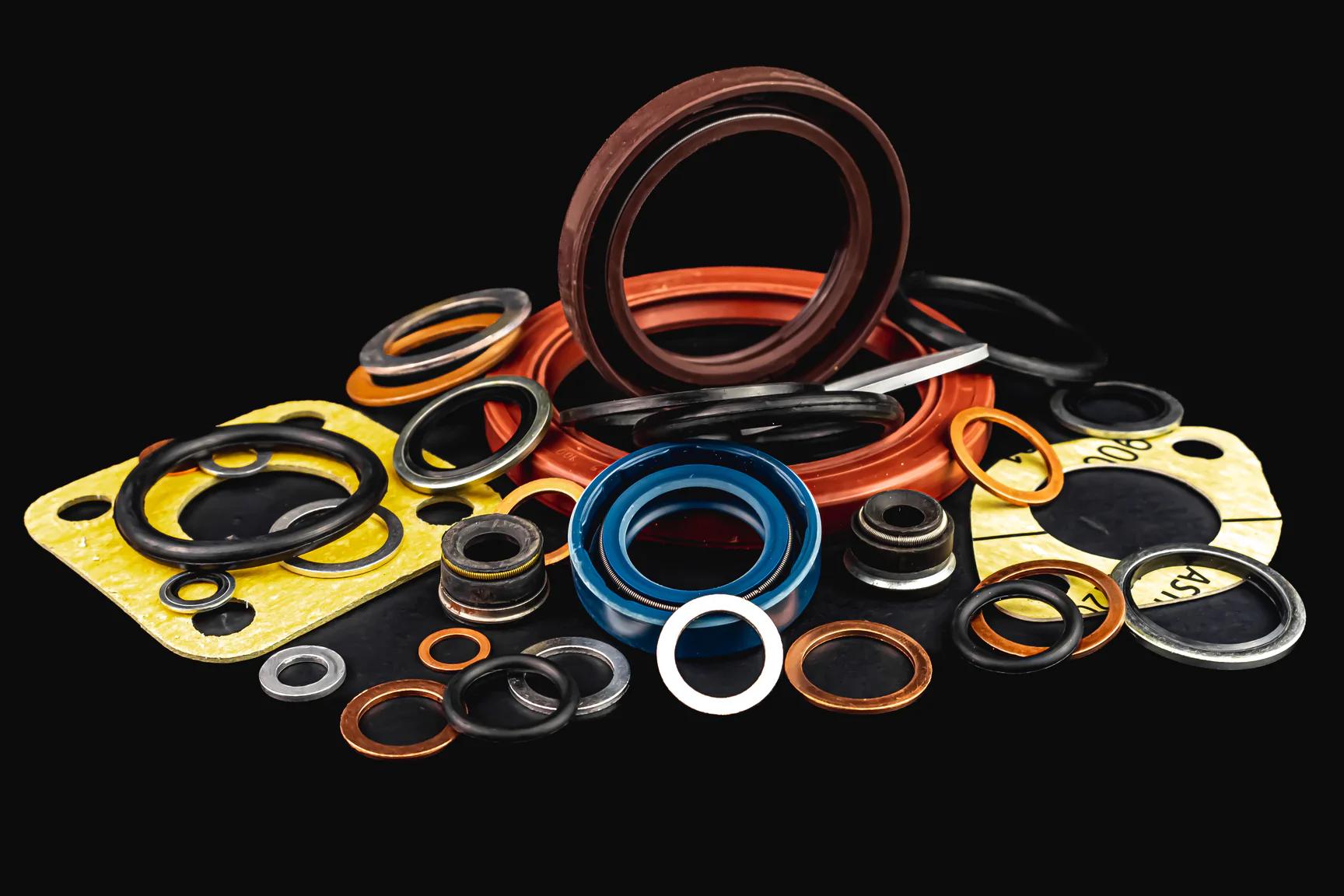Introduction
In industrial and heavy-duty environments, the importance of safety and compliance cannot be overstated. Whether it’s maintaining the reliability of hydraulic systems in construction, mining, or manufacturing sectors, one overlooked component often holds the key to operational integrity: the hydraulic oil seal. These seemingly simple parts play a vital role in ensuring fluid containment, pressure retention, and contamination control.
What many operators fail to realize is that using substandard or poorly maintained hydraulic oil seals can compromise both machine safety and regulatory compliance. In today’s landscape of increasing regulatory scrutiny and heightened safety expectations, investing in high-performance sealing solutions isn’t just an option—it’s a necessity.
Why Compliance Depends on Seal Quality
Hydraulic systems function under high pressure, extreme temperatures, and often in dusty or corrosive environments. A minor failure—such as a degraded oil seal—can result in dangerous fluid leaks, loss of system pressure, and even catastrophic equipment failure. For organizations, these issues translate not only to downtime but also to violations of environmental and safety regulations.
Agencies and regulatory bodies enforce strict guidelines on hydraulic system integrity, particularly in sectors like oil & gas, aviation, marine, and waste management. Leaks, contamination, and system inefficiencies caused by low-quality seals can lead to non-compliance with standards such as ISO 9001, OSHA regulations, and industry-specific codes.
How High-Performance Hydraulic Oil Seals Support Safety
High-quality hydraulic oil seals are designed with precise tolerances and superior materials such as polyurethane, PTFE, and nitrile rubber. These seals offer better resistance to:
- Temperature fluctuations
- Abrasive contaminants
- High pressures
- Chemical exposure
More importantly, advanced seals maintain their elasticity and shape over time, reducing the likelihood of sudden seal failure during operation. By ensuring a leak-free, pressure-retentive environment, these components help operators stay within safety parameters and extend the life of expensive machinery.
Industry Scenarios Where Compliance Matters Most
1. Construction & Earthmoving Equipment
Hydraulic oil seals in heavy machinery must endure constant motion, harsh terrain, and temperature swings. A leaking seal not only risks breakdowns but can also violate site-specific environmental compliance standards.
2. Marine & Offshore Platforms
Saltwater corrosion, high-pressure hydraulics, and environmental protections require durable seals. Non-compliance due to leakage can result in fines and legal penalties.
3. Aviation Ground Support Systems
Precision is key in aviation. A malfunctioning hydraulic seal in ground support equipment could compromise runway safety and airport operational compliance.
4. Waste Management and Compactors
Oil leaks in compactors or balers used for waste handling can cause environmental hazards. Seals that withstand contaminated fluids and pressure variations are essential for compliance and clean operations.
Best Practices to Stay Compliant with Sealing Systems
- Routine Inspection and Maintenance: Check for early signs of wear such as cracks, hardening, or leakage. Schedule preventive maintenance rather than reactive repairs.
- Seal Compatibility Checks: Ensure the hydraulic oil seal material is compatible with the fluid type, temperature range, and operating pressure of the system.
- Use Certified Components: Choose seals that meet international quality and safety standards. This adds a layer of assurance in passing regulatory inspections.
- Professional Installation: Improper installation is a common cause of seal failure. Rely on trained technicians to fit seals correctly without damaging the lips or surfaces.
- Environmental Consideration: Apart from machinery safety, it’s also vital to manage environmental compliance. For example, Automated Car Washes Protect the Environment by reducing runoff and chemical waste—a lesson that applies to all fluid-handling systems, including those using hydraulic oil seals.
Top 5 Companies Providing Hydraulic Oil Seal Services
When looking for reliable providers of hydraulic sealing solutions, the following companies stand out globally for their technical capabilities, innovation, and product quality:
- Parker Hannifin – Known for high-performance seals and hydraulic components that meet strict industry compliance standards.
- Sab Tech – A trusted provider in Saudi Arabia, offering hydraulic oil seals and sealing components that meet the demands of heavy-duty industrial and hydraulic applications.
- Freudenberg Sealing Technologies – A global leader in elastomer-based sealing technologies for industrial systems.
- Trelleborg Sealing Solutions – Specializes in hydraulic oil seals for critical applications in aerospace, energy, and construction.
- Hallite Seals – Provides advanced sealing solutions for fluid power applications with a focus on high-pressure systems.
These companies provide the level of technical support, product quality, and certification needed to maintain compliance in demanding operational environments.
Embedding Quality at the Core of Operations
It’s clear that maintaining regulatory compliance is not just about paperwork—it’s about proactive system integrity. That includes specifying and sourcing seals that deliver consistent performance under varying conditions. From choosing the correct materials and profiles to ensuring professional installation and timely replacements, each step contributes to a safe and compliant operation.
To learn more about choosing and applying the right hydraulic oil seal for your industry, technical consultation and seal customization options are widely available across global and regional providers.
Conclusion
In high-risk, high-performance environments, there is no room for shortcuts—especially when it comes to the small components that uphold the safety of large systems. Hydraulic oil seals may be small, but they carry the burden of keeping pressurized systems efficient, leak-free, and compliant with local and international regulations.
Whether you’re an equipment operator, maintenance manager, or compliance officer, investing in the right sealing technology is a smart move toward safer, cleaner, and more regulation-ready operations.

